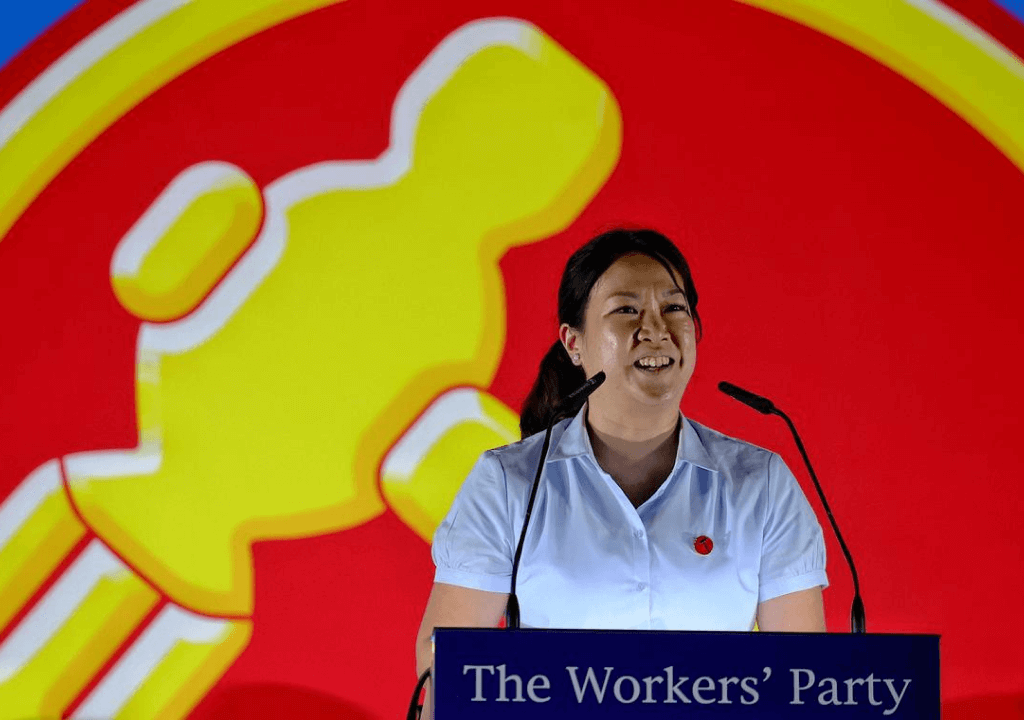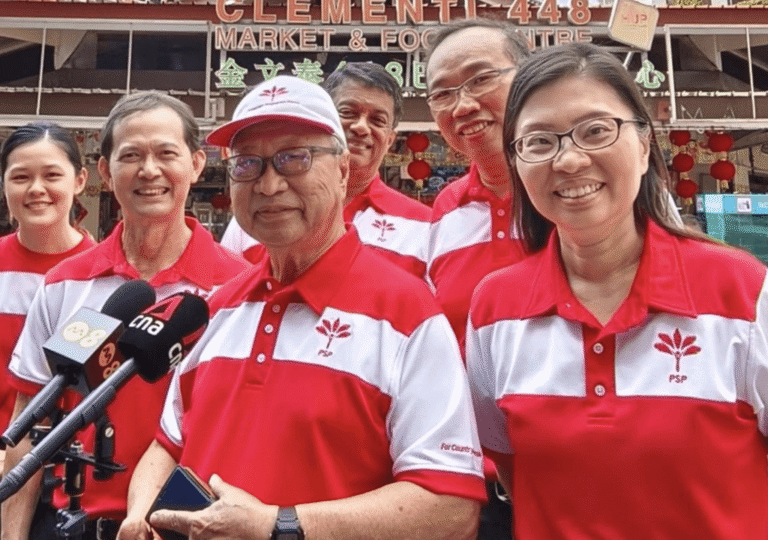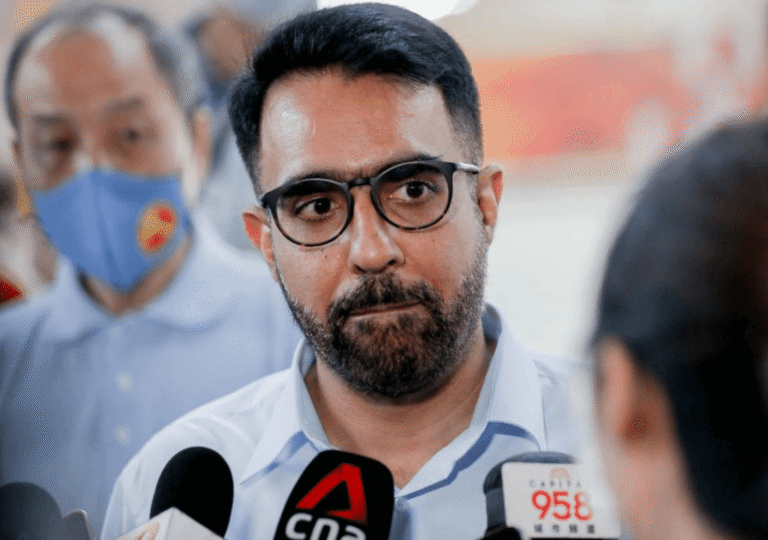After a high-stakes Nomination Day, political parties in Singapore kicked off their election rallies on April 24, injecting fresh momentum into the country’s political landscape. The ruling People’s Action Party (PAP) launched its campaign at Woodlands Stadium in Marsiling-Yew Tee GRC, where Prime Minister Lawrence Wong addressed supporters—delivering his first election rally speech since taking on the dual roles of Prime Minister and Secretary-General.
Across the island in Sengkang, the Workers’ Party, led by opposition leader Pritam Singh, held its own rally, while other opposition parties—including the Progress Singapore Party (PSP), the Singapore Democratic Party (SDP), and the People’s Power Party (PPP)—also kicked off their campaigns.
Although digital outreach now dominates the political scene, politicians and supporters have warmly welcomed the return of in-person rallies after the pandemic-era hiatus. These rallies give parties across the political spectrum a chance to connect with voters, showcase their strength, and shape the narrative in what is emerging as a closely contested election.
Wong Calls for Unity in First Rally
At his first in-person rally as Prime Minister and Secretary-General of the People’s Action Party (PAP) at Woodlands Stadium in Marsiling-Yew Tee GRC, Lawrence Wong called for unity and urged opposition parties to refrain from exploiting sensitive issues or using domestic politics to divide Singaporeans. Despite political differences, he emphasized that all Singaporeans must remain united. Wong also cautioned that external events, such as the wars in Europe and Gaza, could influence public sentiment and deepen divisions. While such matters are open for discussion in normal circumstances, he warned that during an election campaign, they risk being exploited for political gain. If Singaporeans are not vigilant, Wong stressed, the country could risk undermining its unity. He underscored the importance of upholding multiracial politics and safeguarding unity, particularly in relation to national interests, sovereignty, and Singapore’s global standing.
As the final speaker of the evening, Wong, the incumbent anchor minister for Marsiling-Yew Tee GRC, was met with the loudest applause from the crowd. He reminded Singaporeans of the gravity of the global situation—a theme he has consistently referenced since the election announcement—and emphasized that the stakes go beyond party politics. Once the election concludes, he stated, the real challenge will be not PAP versus the opposition, but Singapore versus the world—a small, vulnerable nation facing a volatile global landscape.
In addressing the rising cost of living, exacerbated by global tariffs and trade tensions, Wong outlined the government’s proactive measures. Early in 2025, the government rolled out support programs such as CDC and SG60 vouchers, as well as utility rebates. A typical family of four with two young children is set to receive approximately $5,000 in assistance this year, with additional support directed at more vulnerable households.
Wong also responded to concerns regarding job security and career prospects for students. He shared that a national task force, led by Deputy Prime Minister Gan Kim Yong and coordinated by labor chief Ng Chee Meng, had been established to address these challenges. The task force is focused on helping businesses retain workers and expanding initiatives such as traineeships, skills upgrading, and job-matching programs.
Looking ahead, Wong reiterated the PAP’s commitment to long-term policy reform, citing the Forward Singapore initiative, which has already brought significant changes in education, healthcare, and housing. He highlighted the introduction of a new classification system for HDB flats as part of these reforms.
He also acknowledged the desire among seniors to age in place. While community care apartments have been introduced, demand continues to outpace supply. To address this, new housing models are being explored to allow seniors to remain in their homes while having convenient access to care and support.
While rallying support for the PAP, Wong noted the growing influence of the opposition, which is determined to expand its reach. He pointed out that the Workers’ Party is maintaining most of its MPs in their existing wards to secure their seats, while deploying new candidates to enhance its presence in Parliament.
Wong noted that Red Dot United, contesting its second election, is fielding 15 candidates—the second-largest opposition slate after the Workers’ Party, which is fielding 26. He also highlighted that other opposition parties, including the Progress Singapore Party, Singapore Democratic Party, and National Solidarity Party, are each contesting at least 10 seats. Wong stressed that the upcoming election will be a tough contest and that he is not taking a PAP victory for granted.
WP Wants Diversity
Pritam Singh, leader of the Workers’ Party (WP), urged Singaporeans to vote the party into Parliament, emphasizing that it has consistently proven itself to be a responsible and constructive force in times of crisis. Speaking at a rally in Sengkang on April 24, Singh addressed concerns over geopolitical tensions, particularly the U.S.-China trade war, and cautioned voters not to be swayed by political tactics. He reassured them that the presence of rational, responsive, and respectful WP MPs in Parliament would serve to strengthen, not weaken, Singapore.
Singh, the final speaker of the night, followed a series of WP candidates who addressed critical issues such as the rising cost of living and the need for diverse voices in Parliament. He argued that the WP has provided credible alternatives and has been instrumental in challenging groupthink in policymaking, offering ideas to reduce reliance on foreign labor and improve worker protections. He noted that the WP’s manifesto presents a concrete and realistic vision, in contrast to the vague, feel-good rhetoric often seen from the PAP.
He stressed the importance of an opposition that holds the government accountable. Singh declared that the WP’s mission is to pressure the government to improve by voicing the real concerns of Singaporeans. His goal is to establish a balanced political system that prevents unchecked power.
Singh also called on citizens to actively participate in shaping Singapore’s future. He referenced Hougang residents, who have shown resilience for decades, encouraging others to adopt a similar spirit.
Others also opened rallies.
The Progress Singapore Party (PSP), the third-largest party in Parliament, held its rally at Bishan, where speakers addressed critical issues such as job security, the rising cost of living, the need to check the dominance of the People’s Action Party (PAP), work-life balance, and senior citizens’ well-being. Tan Cheng Bock, the founder and chairman of PSP, stressed the necessity of opposition voices in Parliament to prevent groupthink, especially as many PAP candidates are drawn from the civil service and the armed forces.
The party’s secretary-general, Leong Mun Wai, accused Singapore’s fourth-generation leadership of losing their way. He criticized the government for raising the goods and services tax (GST) to 9 percent despite ongoing inflation and the economic challenges left by the pandemic.
The Singapore Democratic Party (SDP) also held its first rally at Choa Chu Kang Stadium. Party leader Chee Soon Juan addressed the crowd, claiming that Singaporeans are struggling with rising living costs, which he attributed to “the PAP’s very own making,” rather than global trends.
Meanwhile, the People’s Power Party (PPP) conducted a rally in Tampines at Temasek Junior College. PPP secretary-general Goh Meng Seng criticized the Workers’ Party (WP) and its leader, Pritam Singh, accusing them of betraying voters in the Marine Parade-Braddell Heights GRC by not contesting there, which led to a walkover for the PAP. Goh also took aim at various government policies, including the national Covid-19 vaccination drive.
The spirit of a multi-party contest was palpable throughout the rallies, with parties presenting themselves as strong challengers to the PAP’s dominance and engaging in vigorous debates over the nation’s future.







